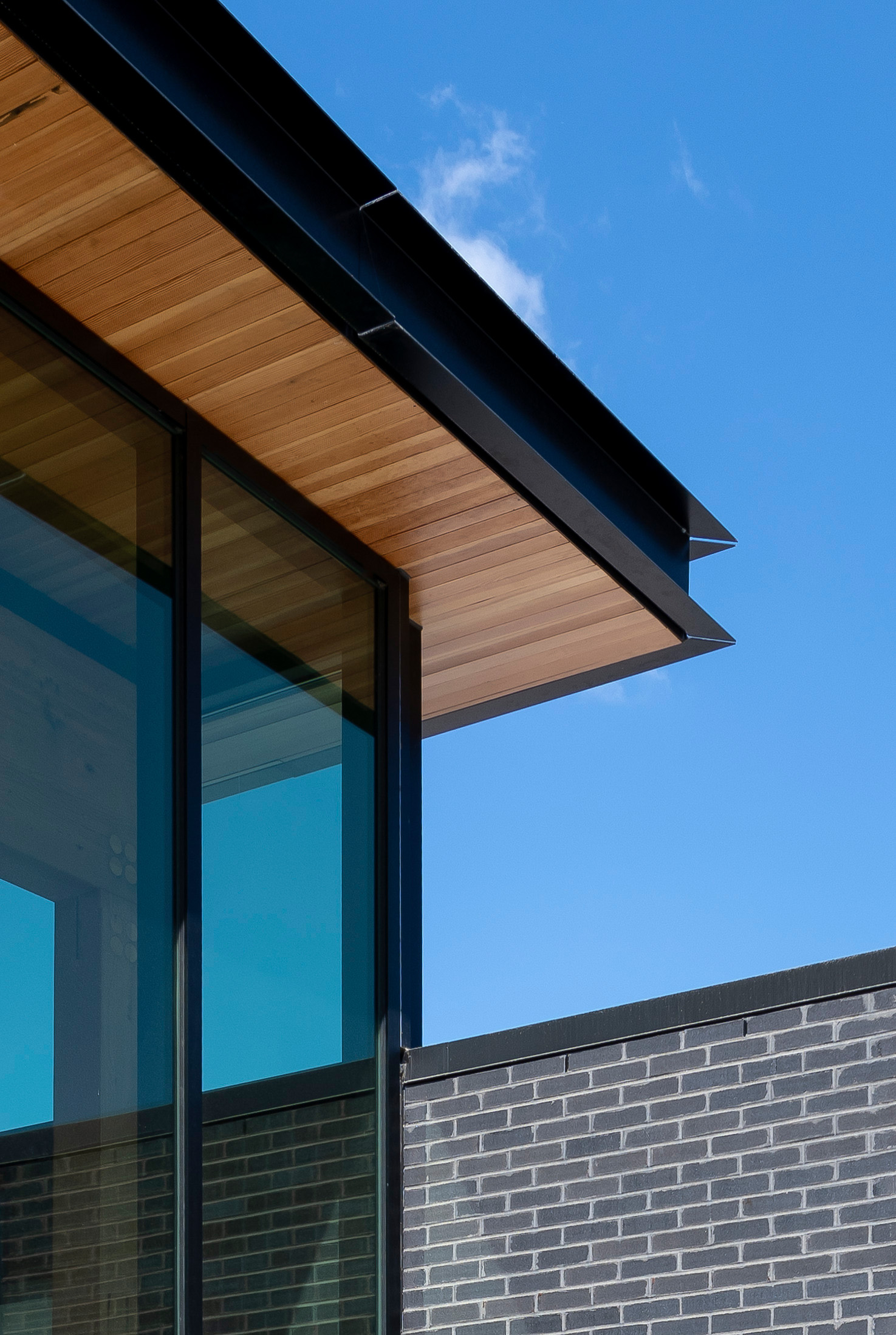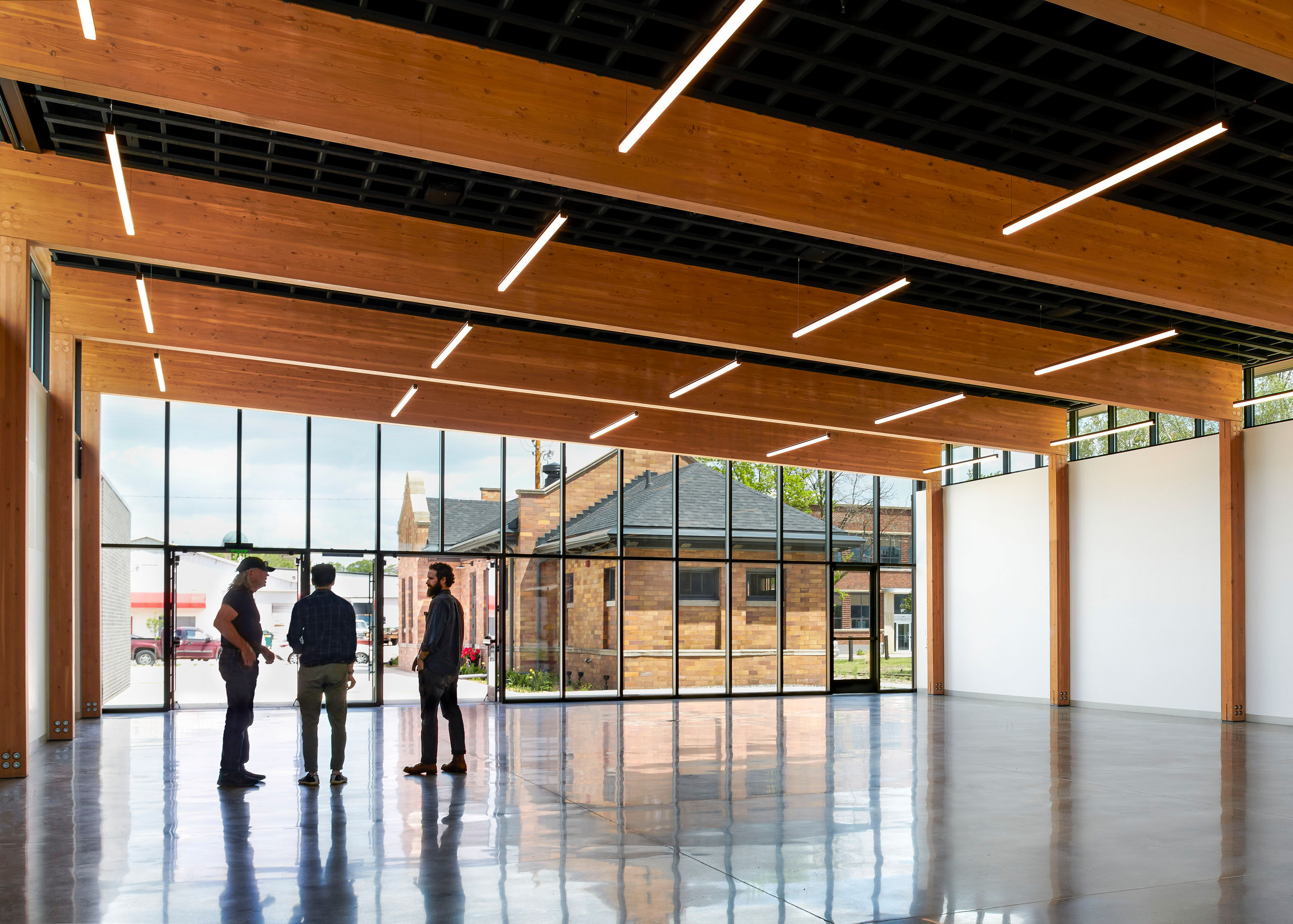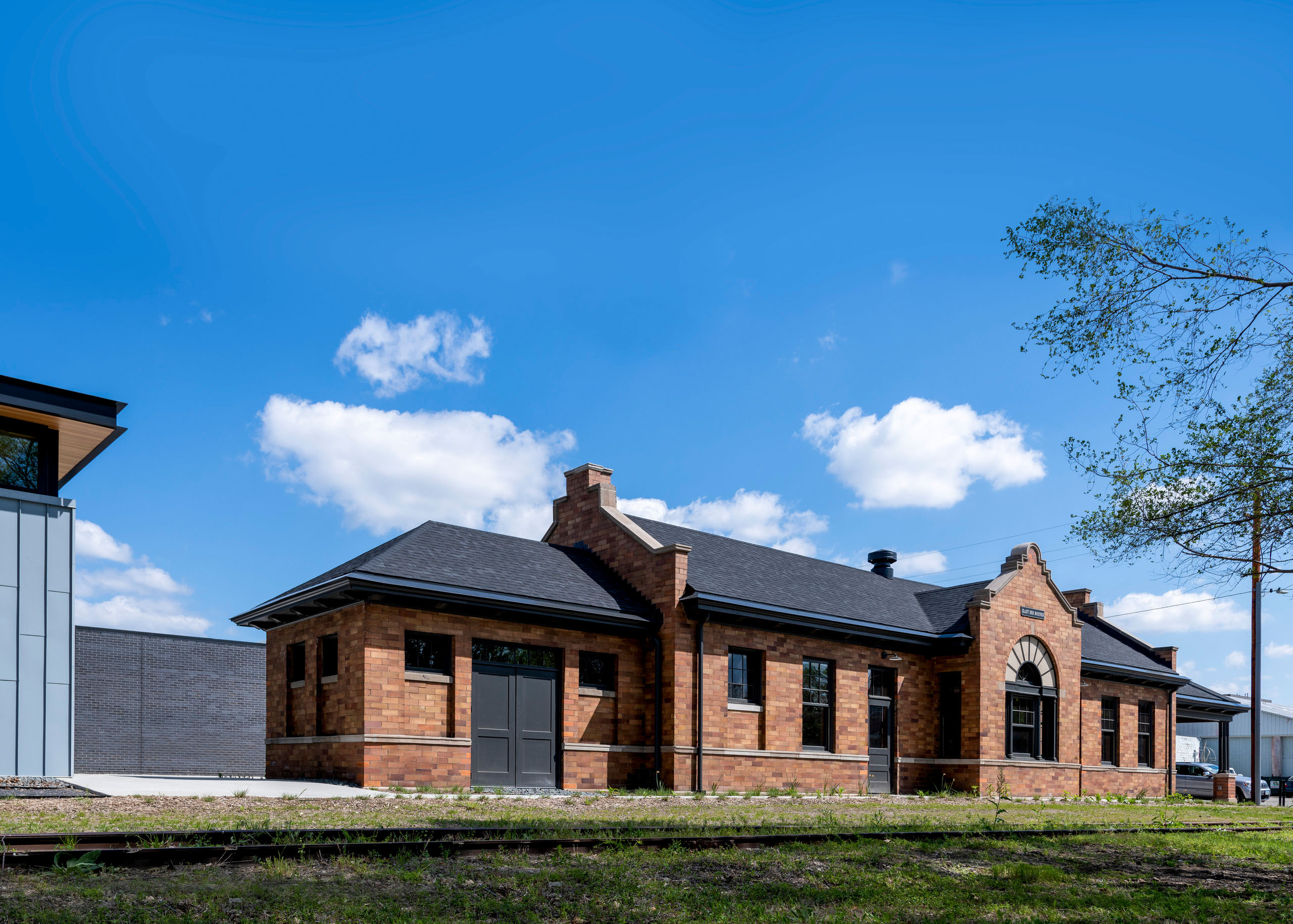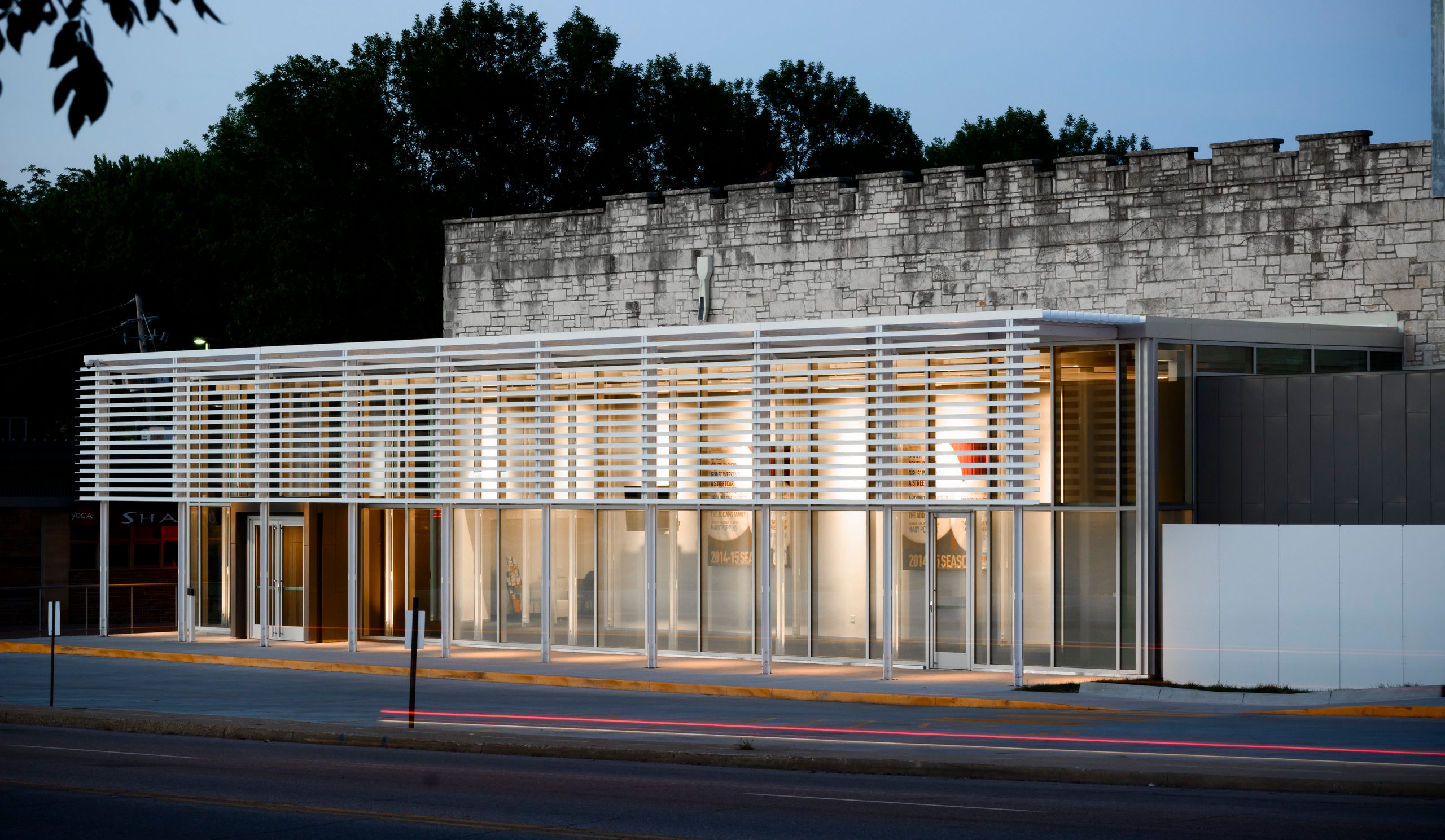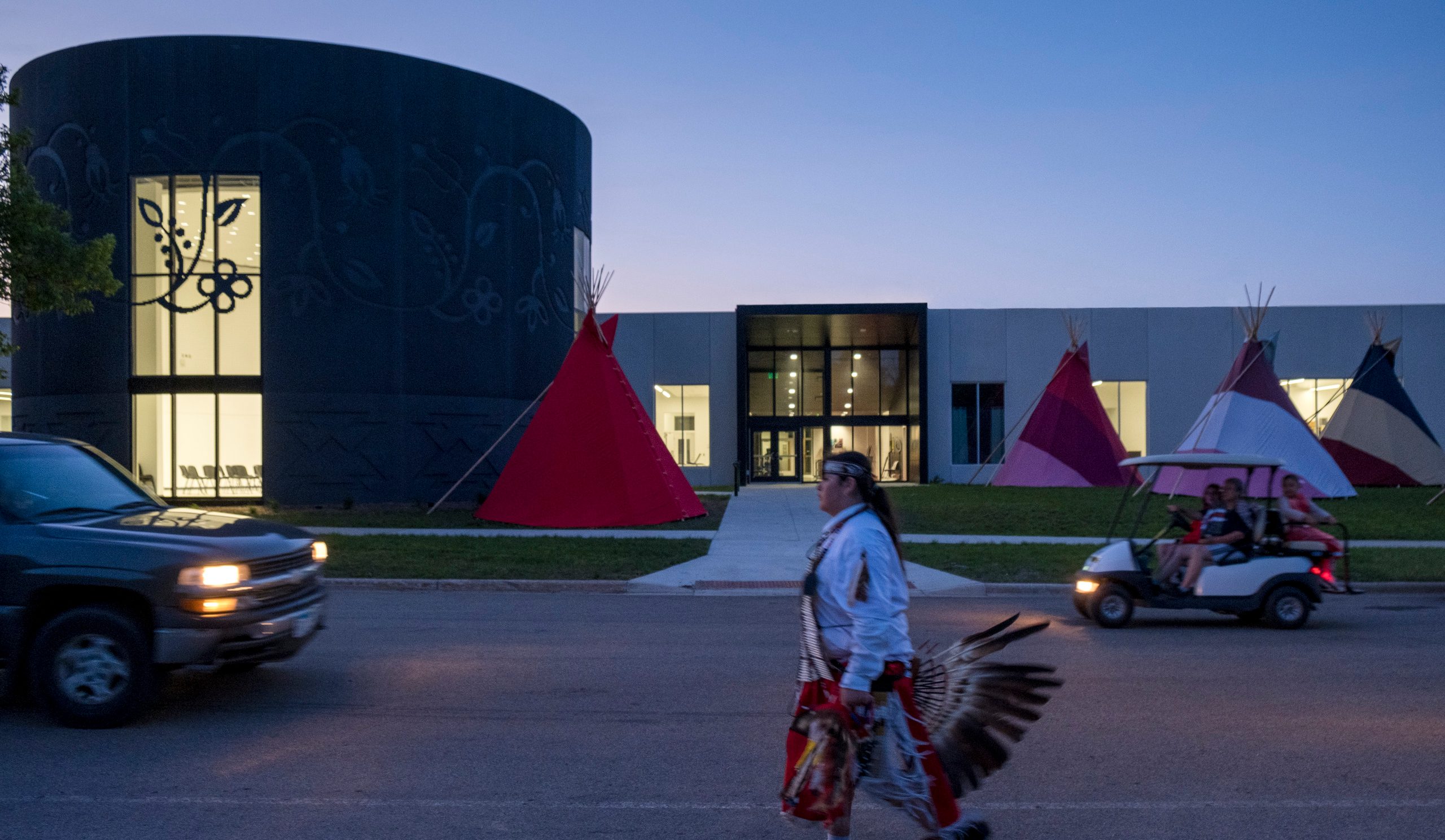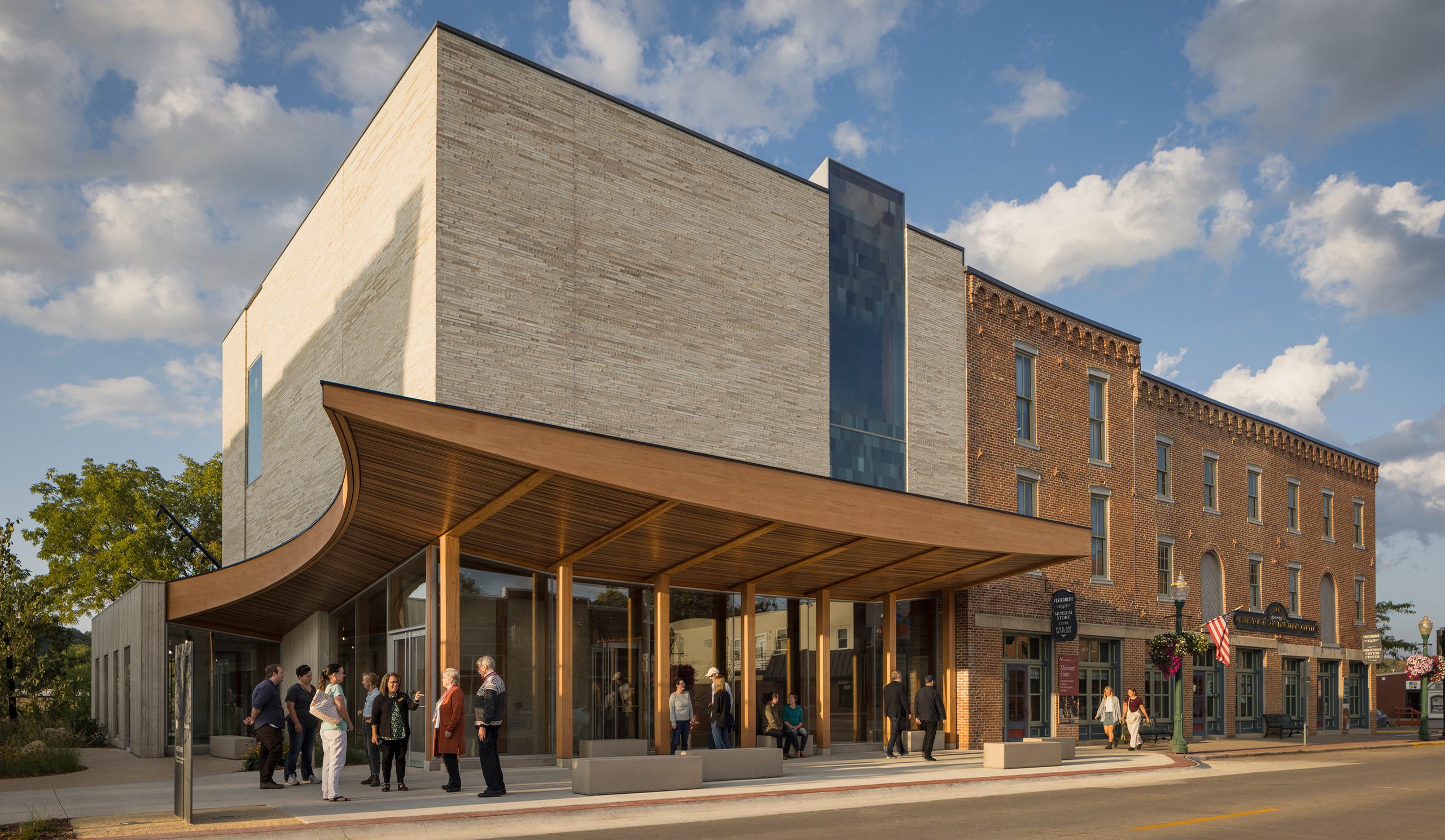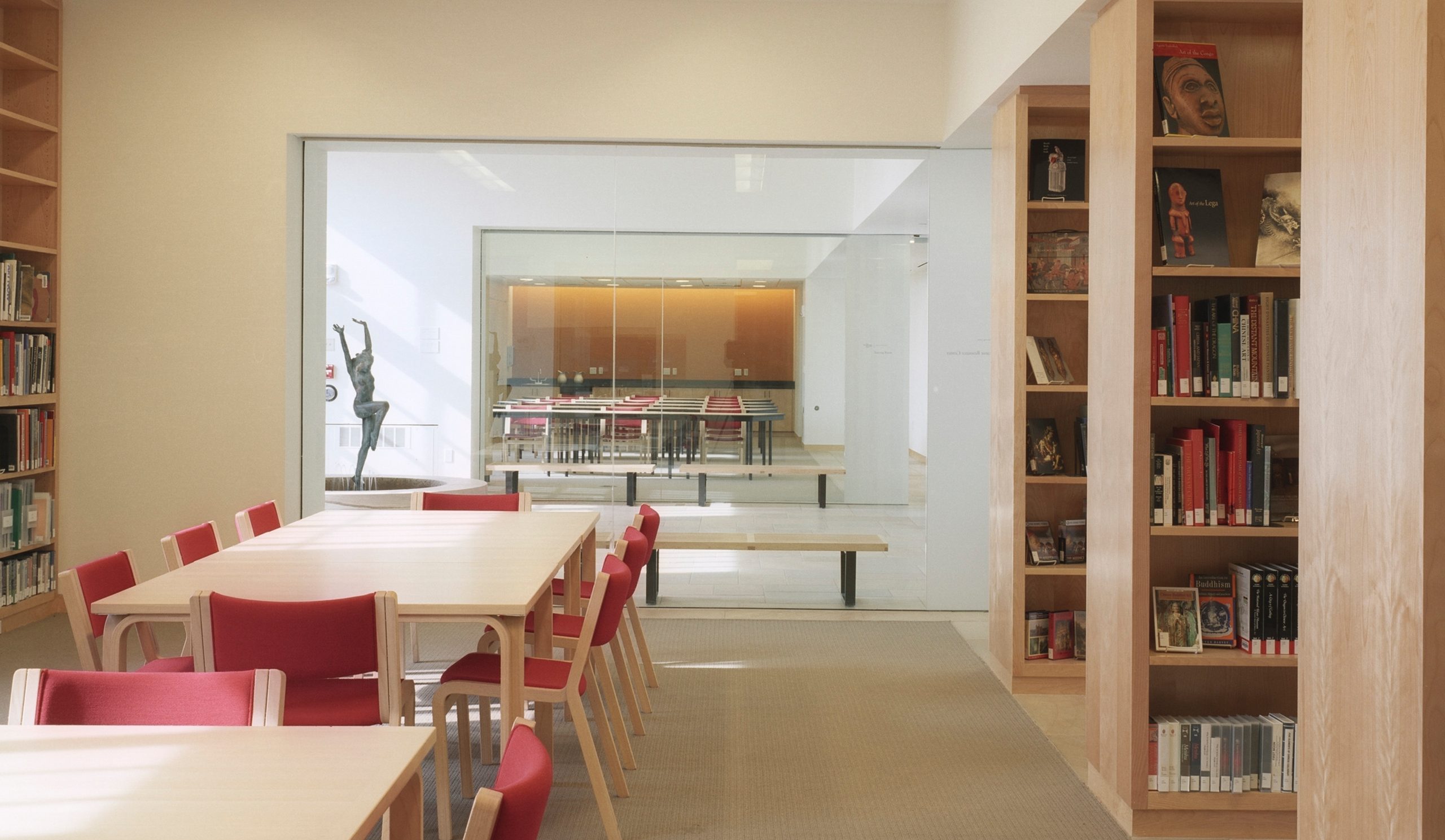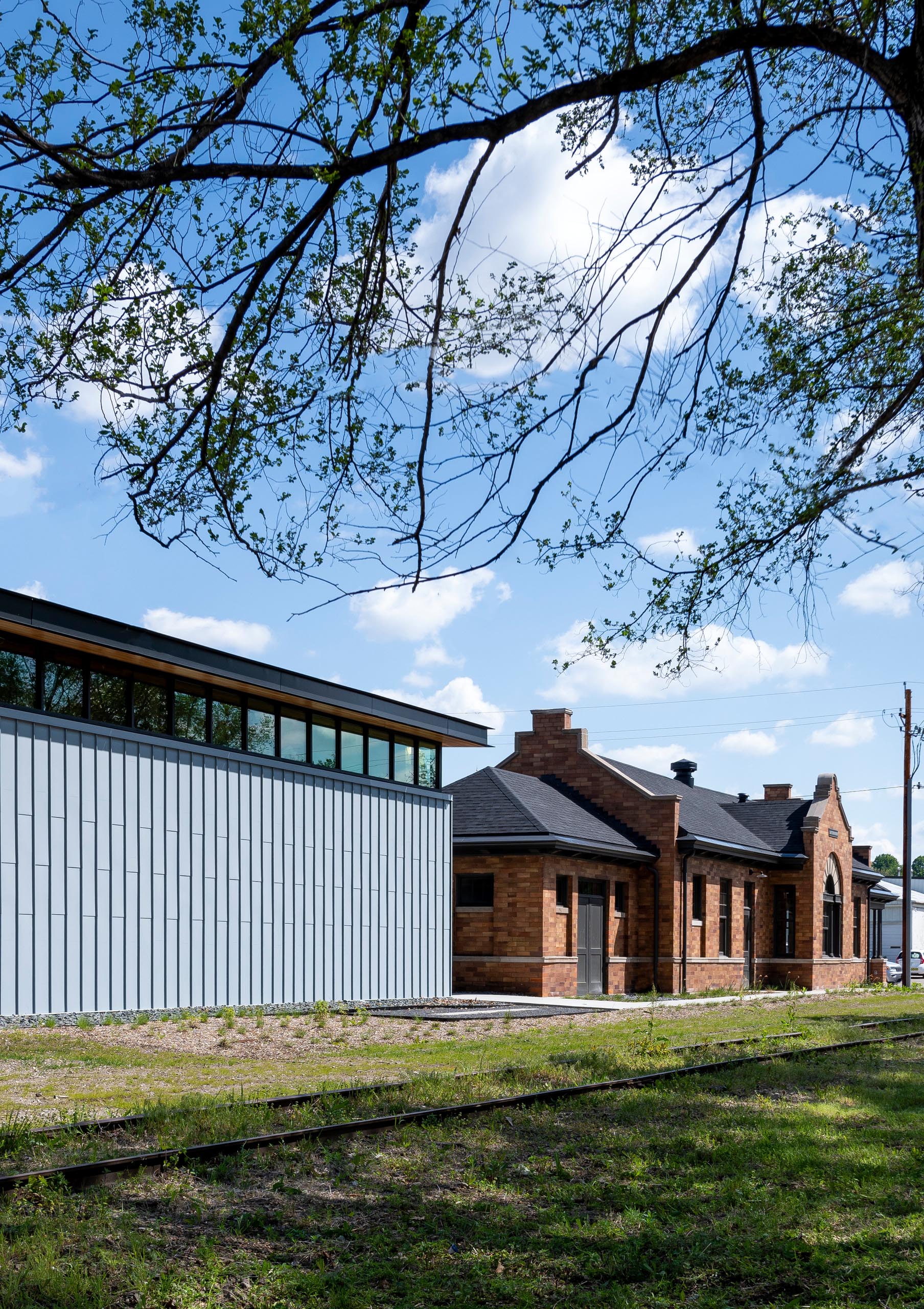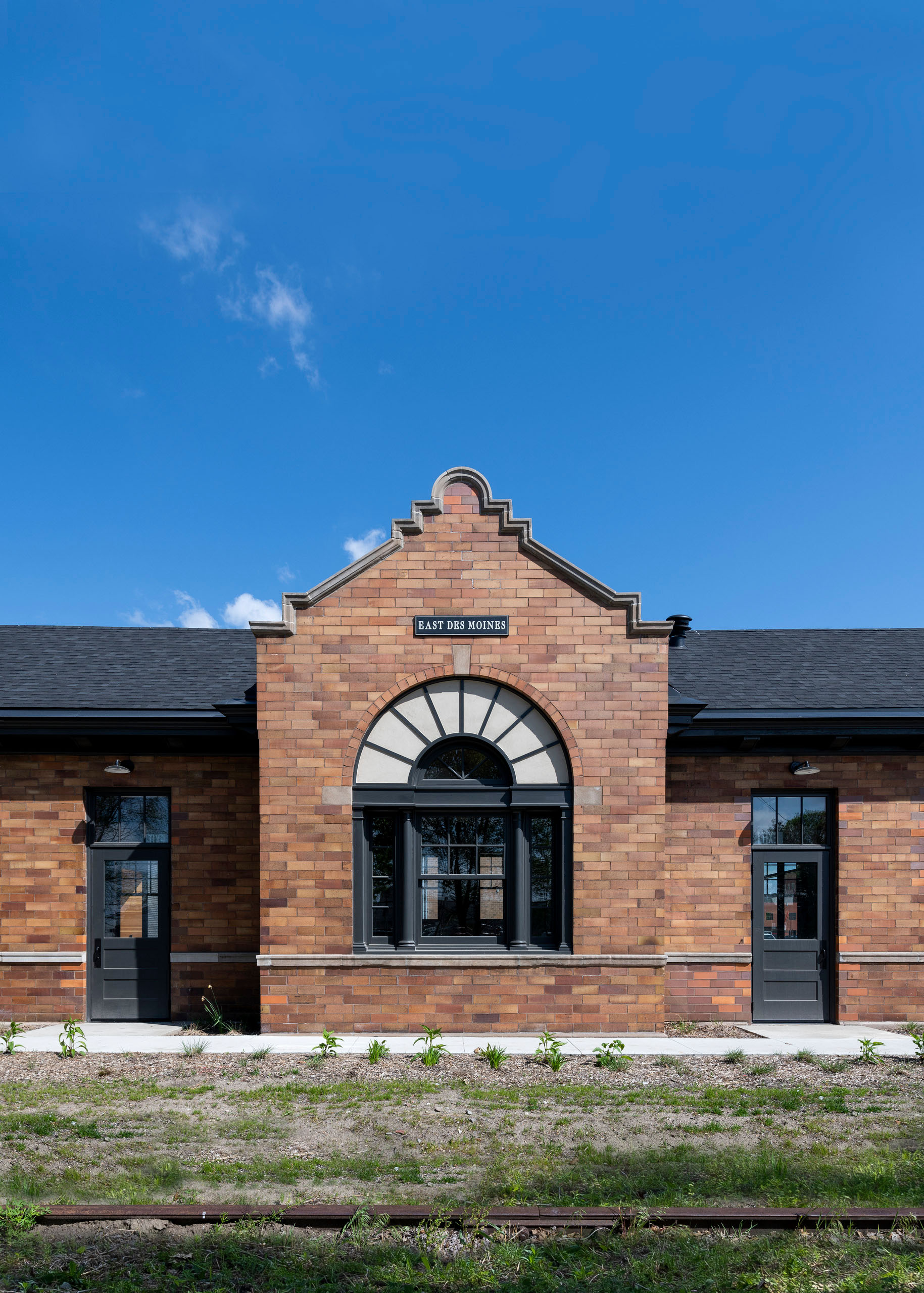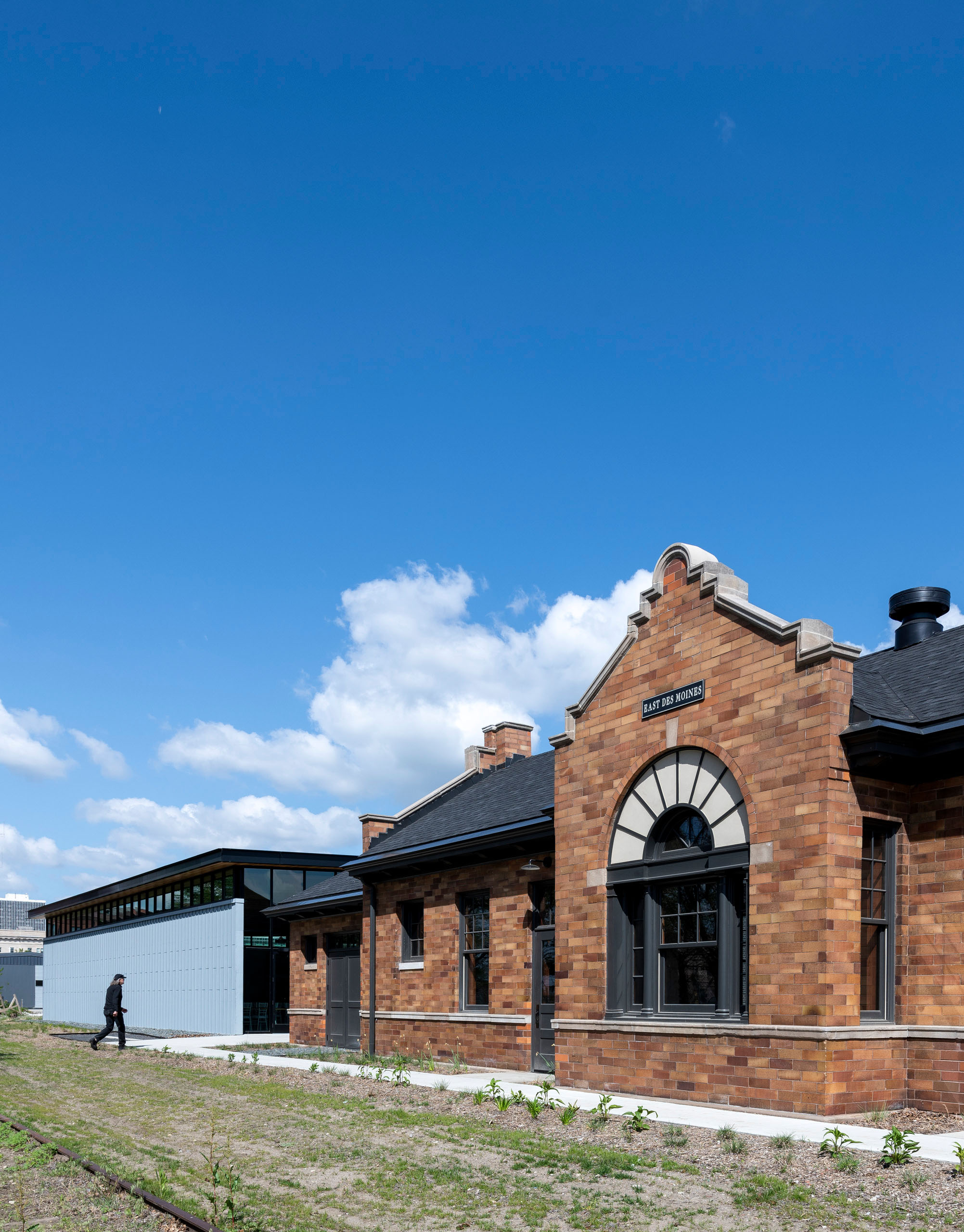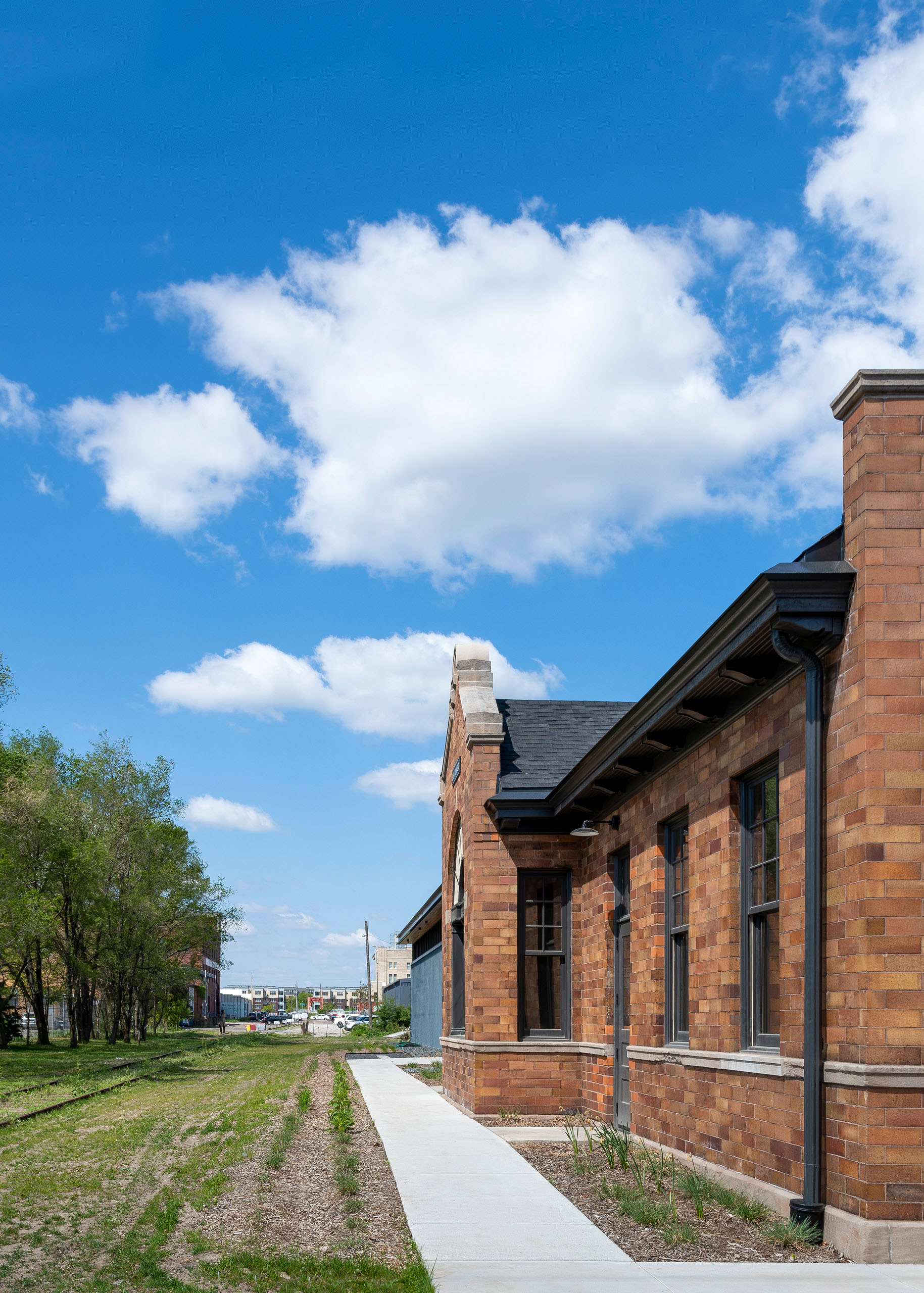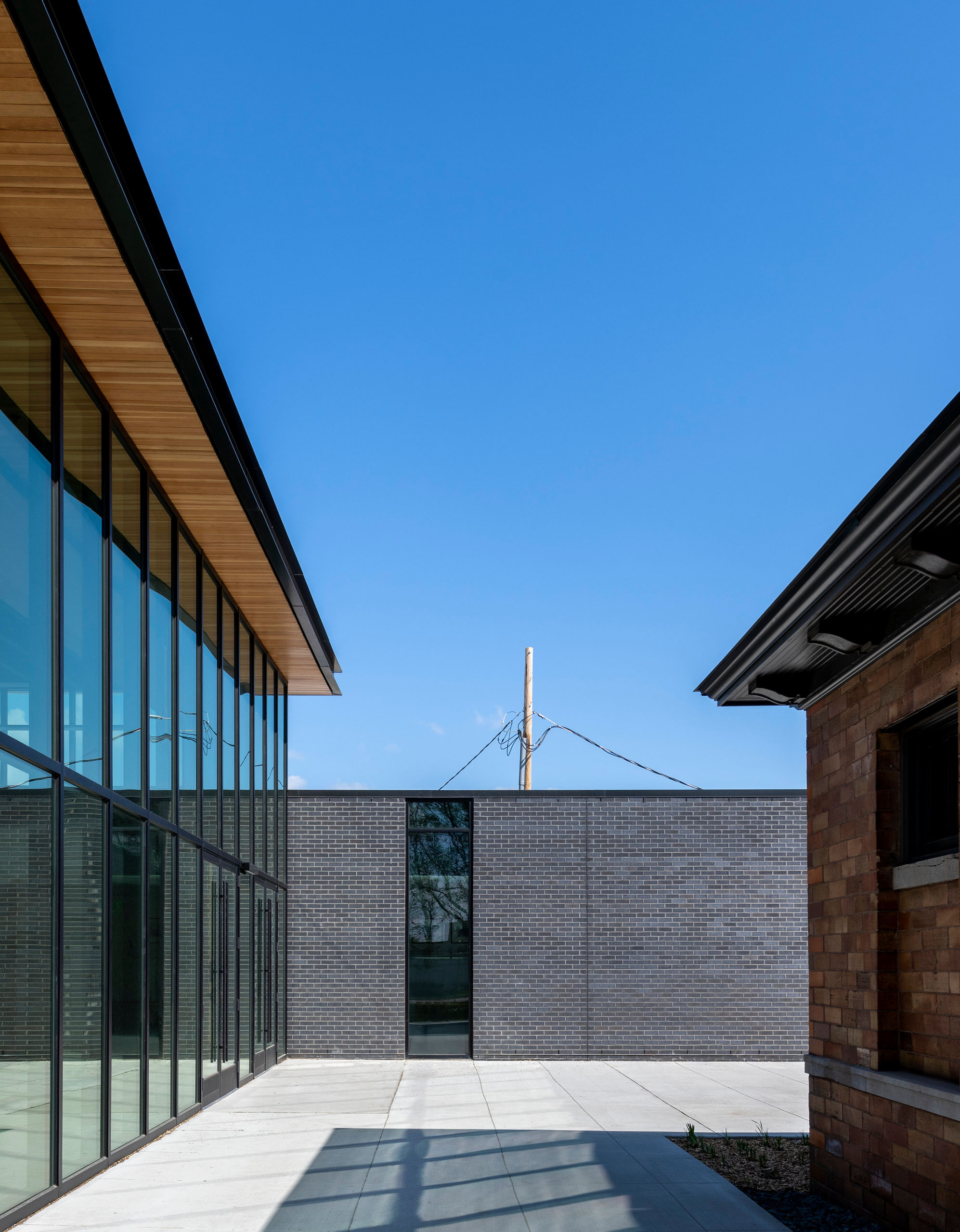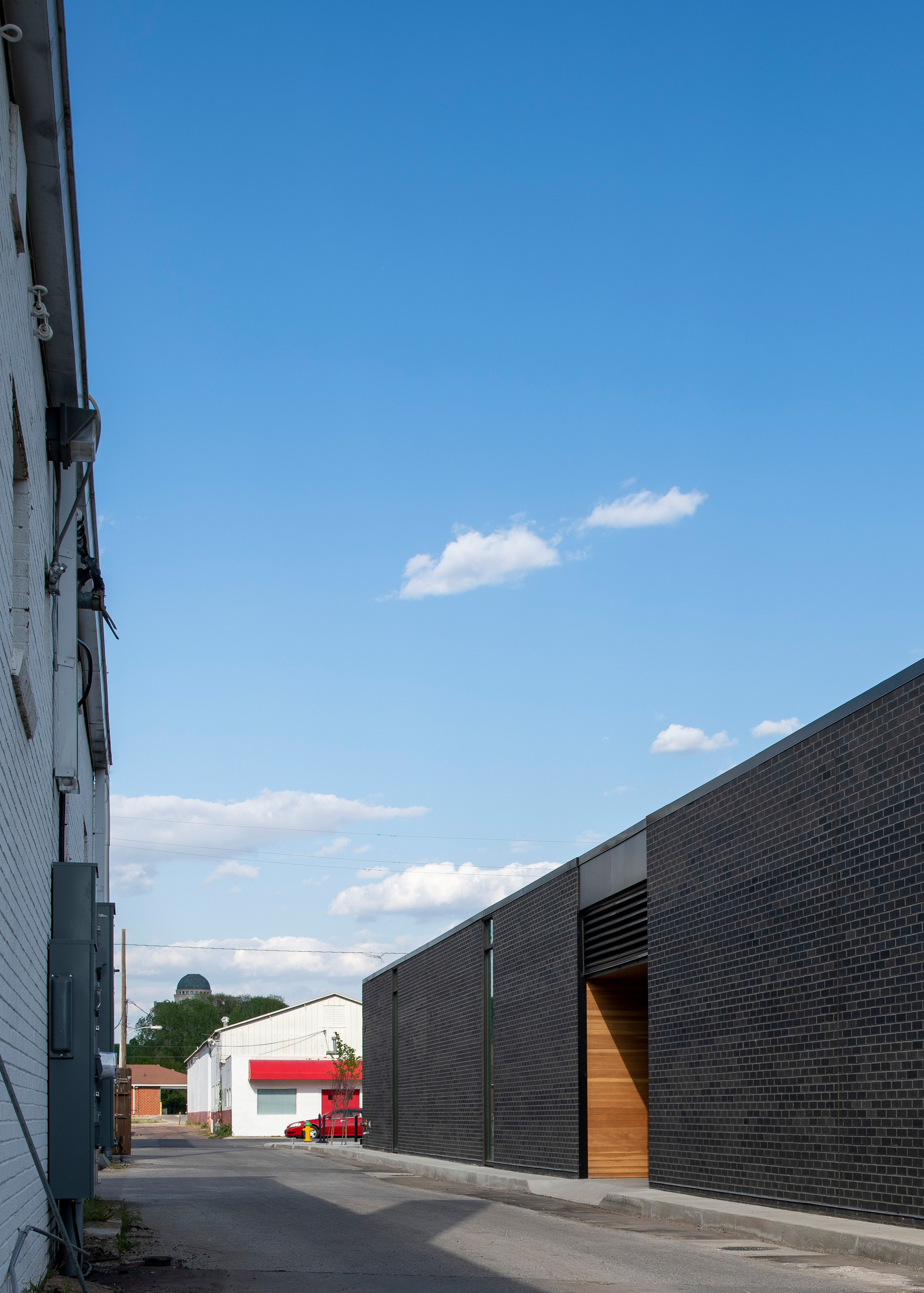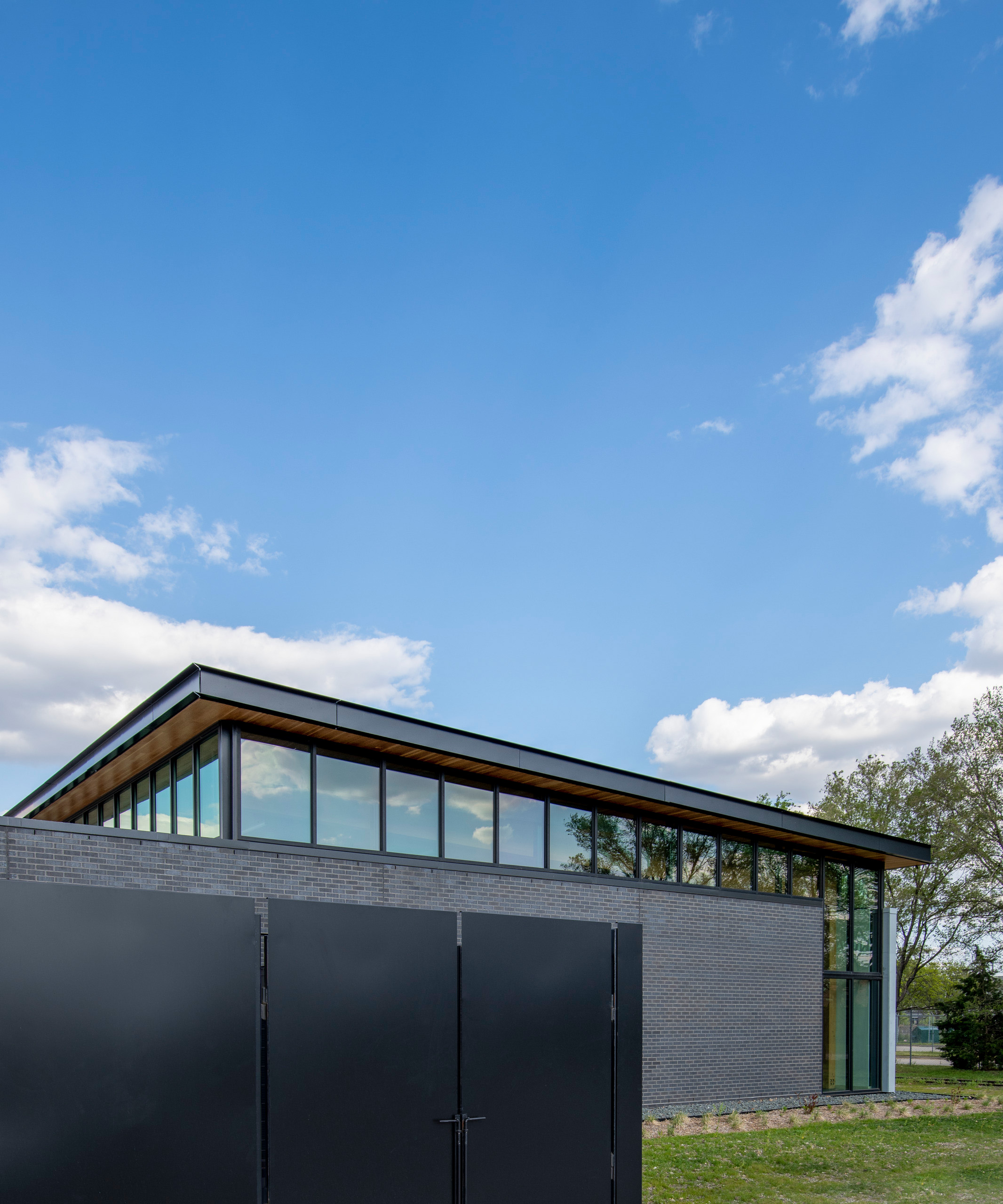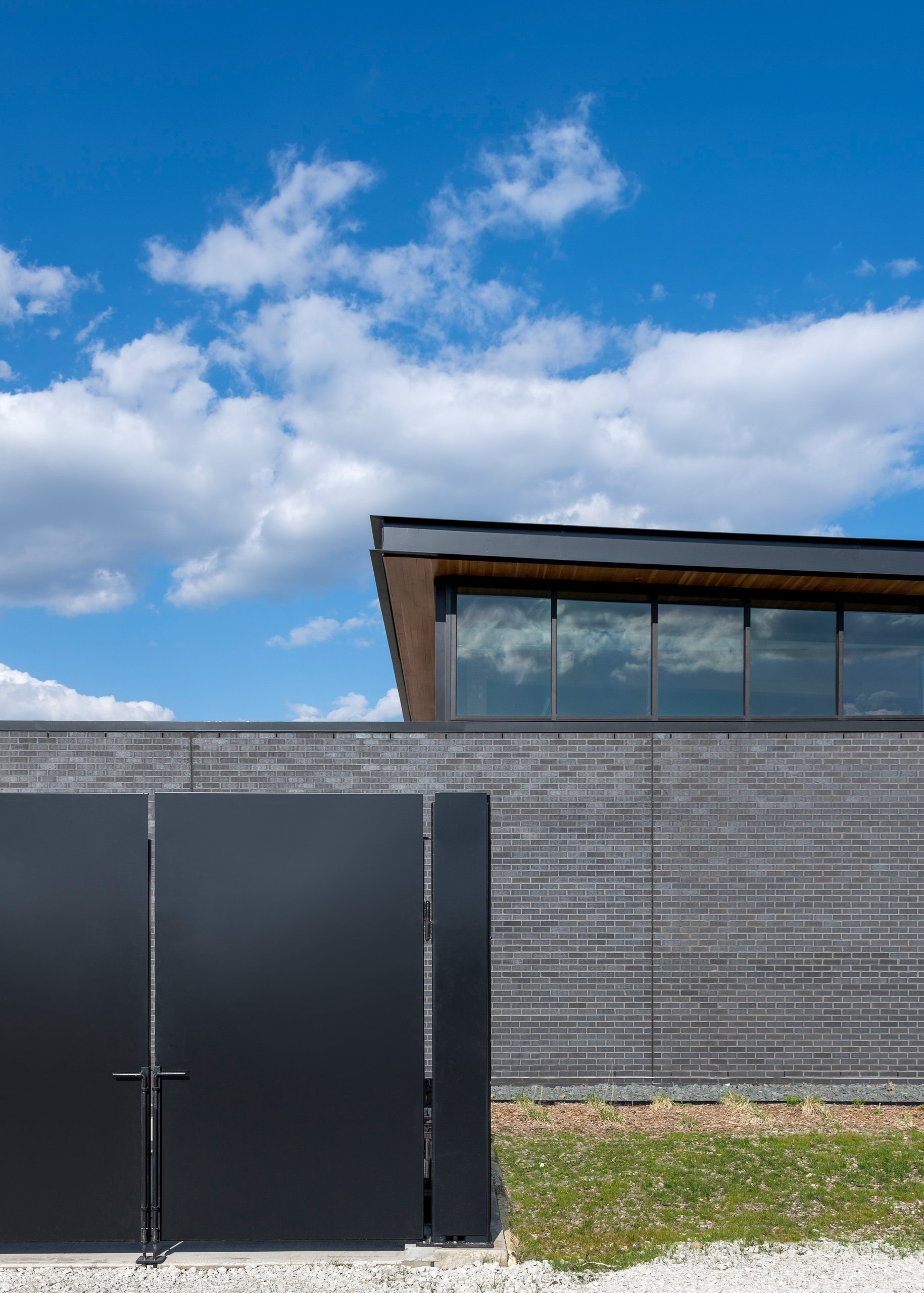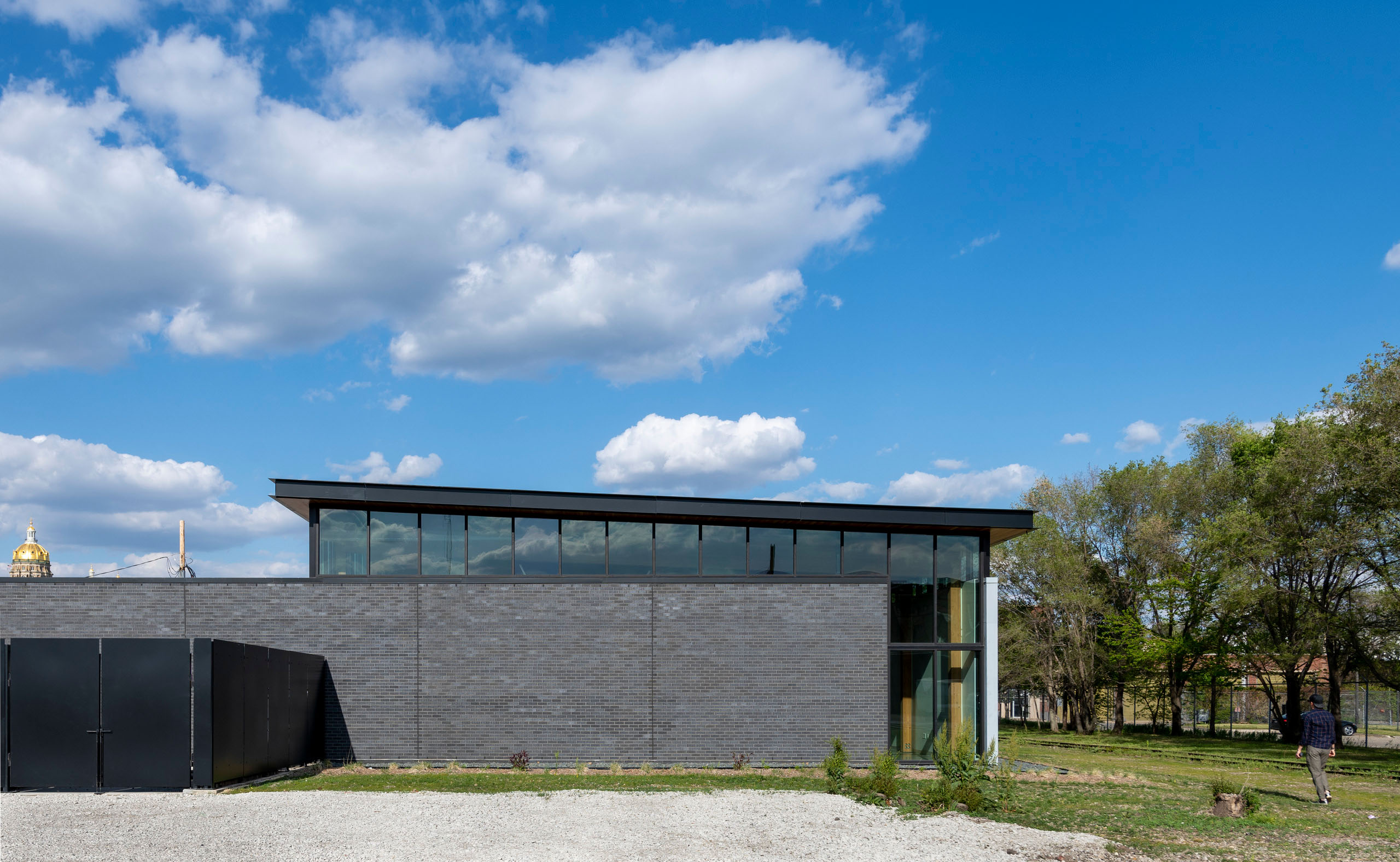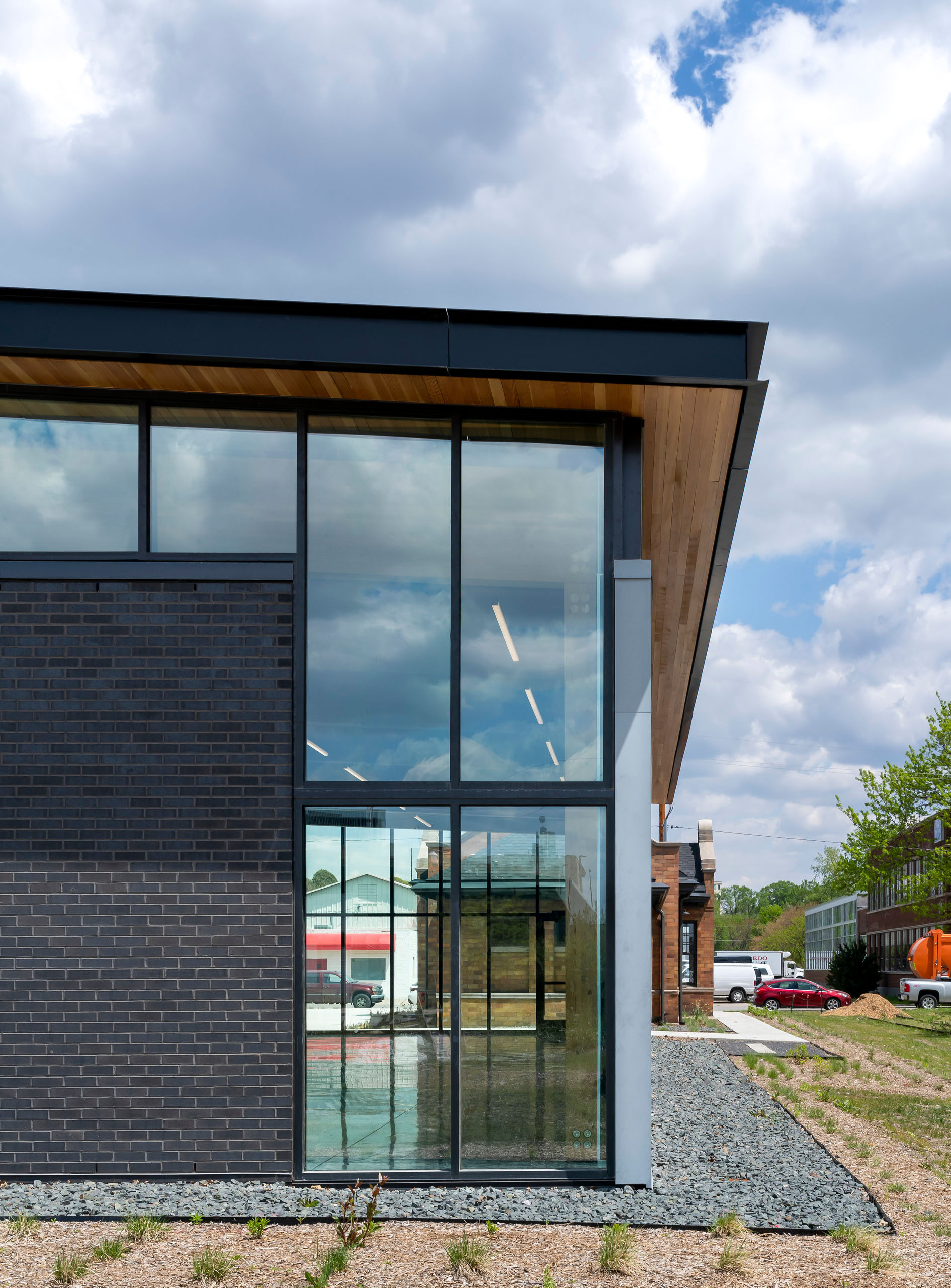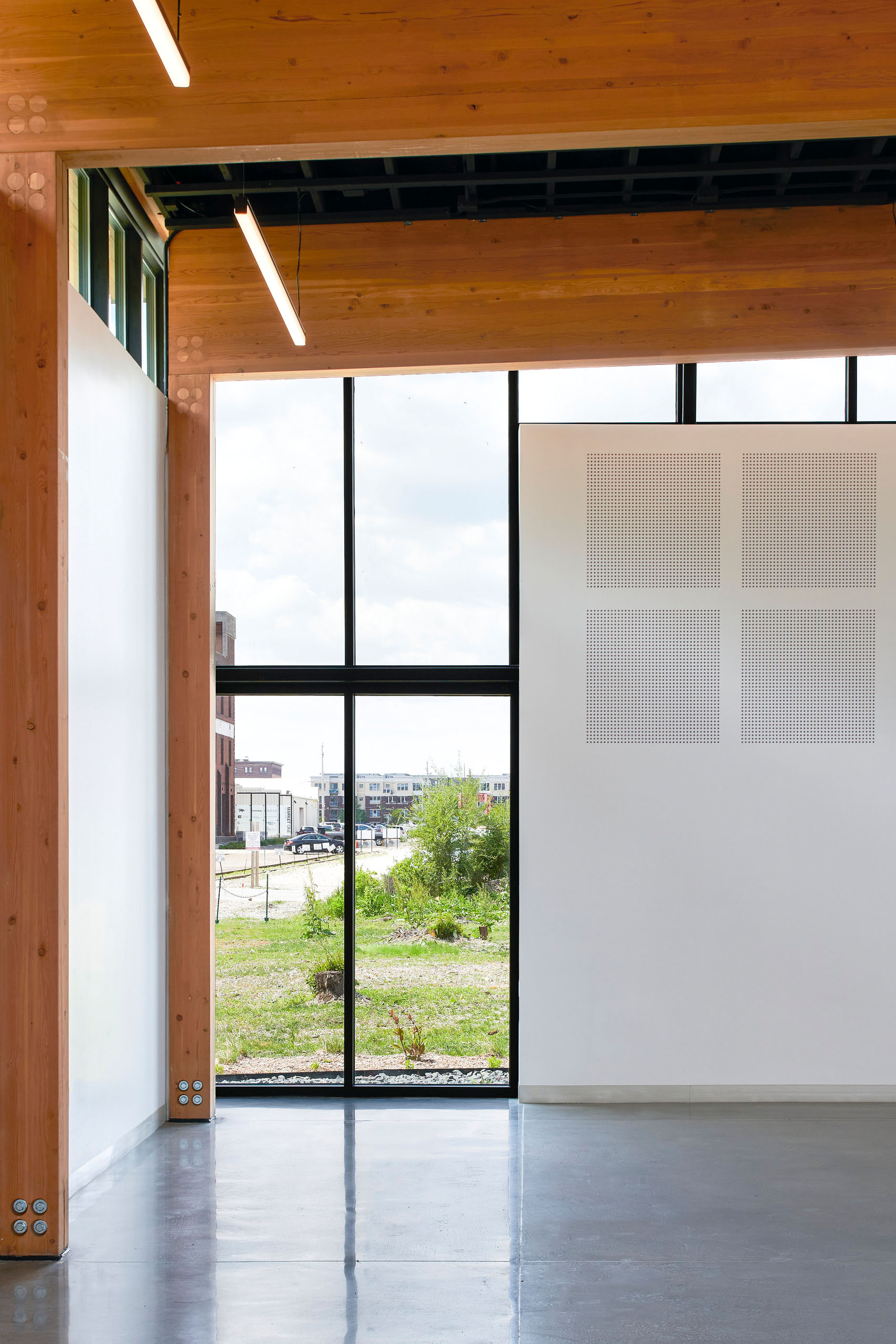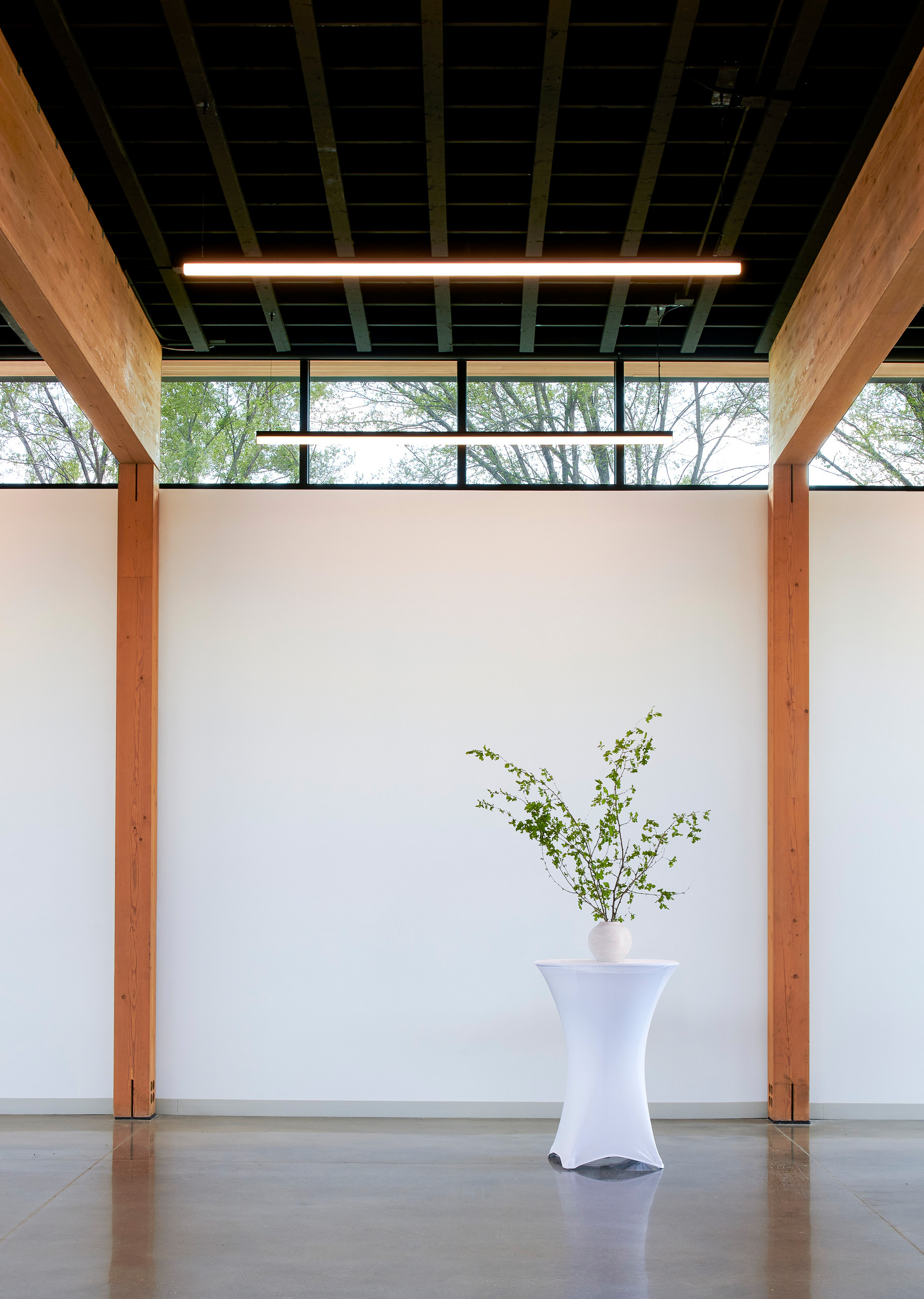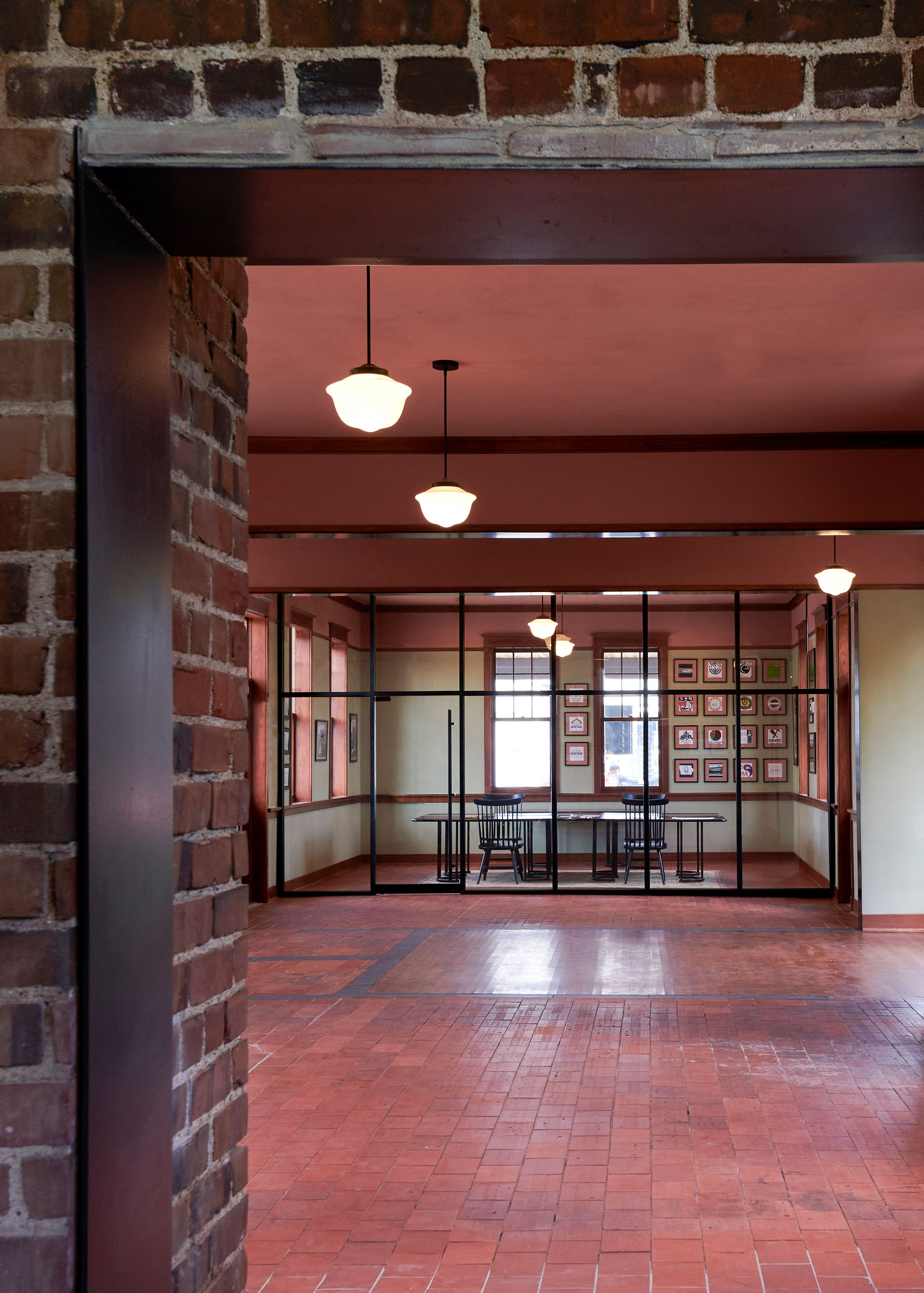Des Moines Heritage Center
A century-old Flemish Renaissance-style depot is restored to host Des Moines’ heritage organizations and event space.
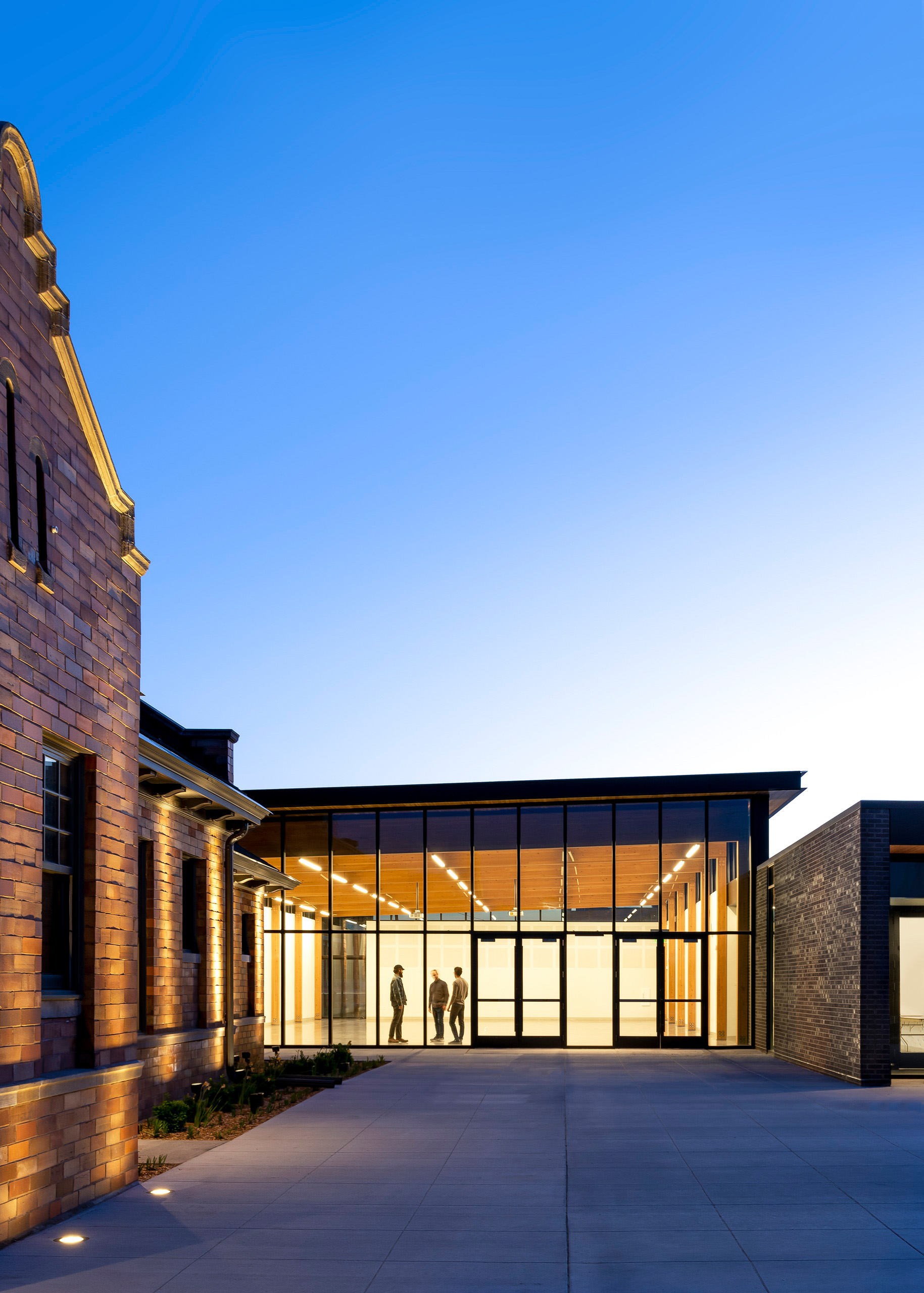
Information
- Location Des Moines, Iowa
- Size 9,100 SF
- Completion 2020
- Services Architecture
The Des Moines Heritage Center has made its new home in the restored landmark1909 East Des Moines Union Depot and a new adjacent events space for educational and cultural programming as well as community engagement on site. The 110-year-old building was once the main east-side train depot and is one of only two Flemish Renaissance-style depots in the United States. Industrial warehouses have hidden the depot from view for years as it had become vacant. The depot was identified as having a high likelihood of being demolished, therefore the Des Moines Heritage Trust decided to transform the site into the organization’s headquarters as well as to create a new space for private events and use by other non-profits. The structure has been repurposed as a museum to showcase the city’s history, hosting Des Moines’ heritage organizations including the Des Moines Heritage Trust, the Des Moines Historical Society, Friends of Des Moines Streetcars, and Des Moines Rehabbers Club.
Impact + Innovation
The Des Moines Heritage Center has served as a catalyst for the development of the Market District in the East Village, which is a twenty-year initiative of the City of Des Moines to transform this industrial area of the city into a new urban neighborhood. The new building design focused on creating an event space that would not overpower or compete with the existing historic depot but to serve as a simple, modern companion. The new construction was placed to the west of the depot creating an exterior connecting plaza which serves as a visual and functional extension of the main event space. The material pallet for the new facility is made of humble wood, black brick, and zinc to engage with the neighboring context and history.
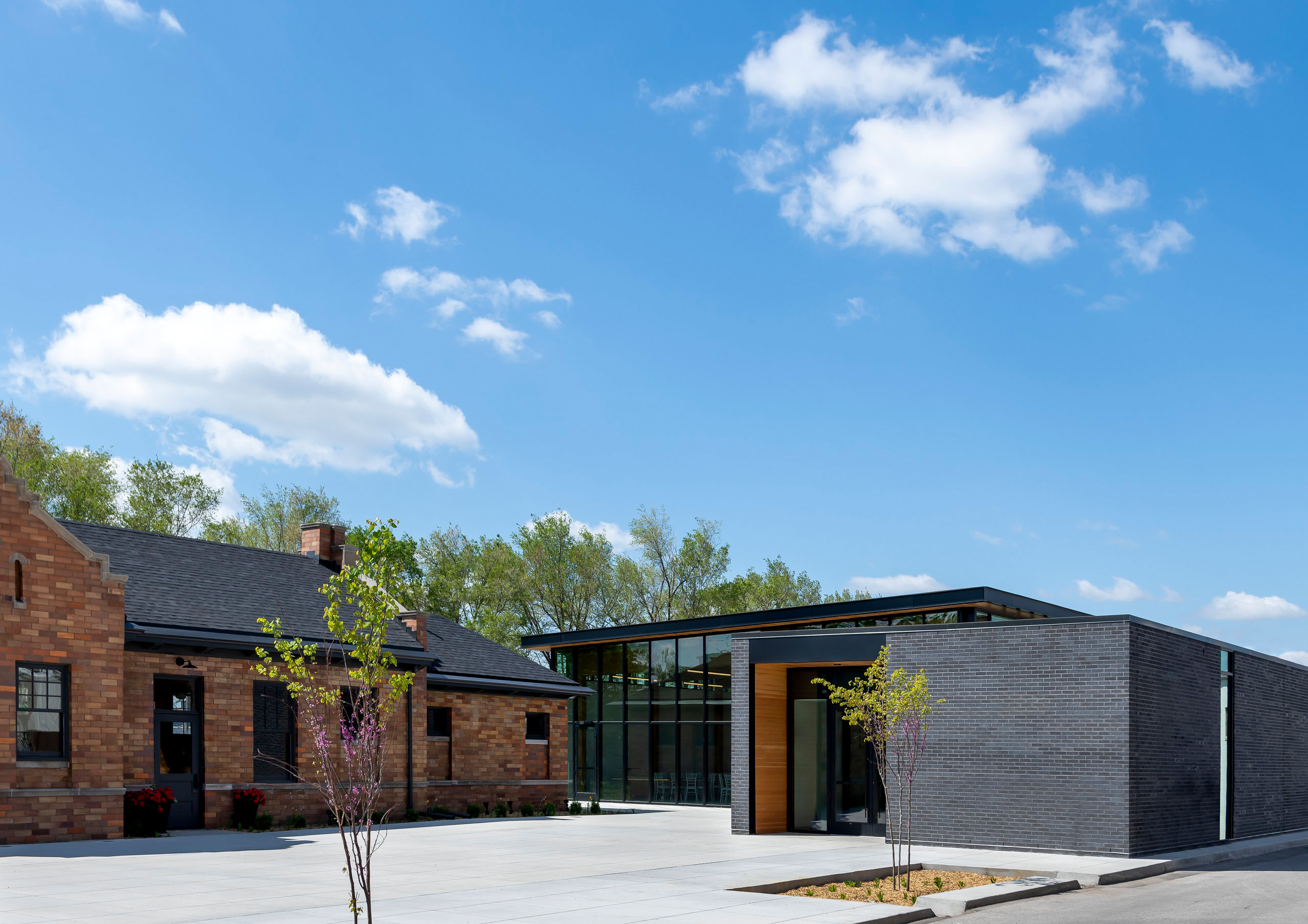
Process
The BNIM team collaborated with the owner to come up with sustainability goals that can be incorporated now and attainable over time. These goals include the eventual installation of solar panels, on-site storm water management and reduction in water use, and reduced embodied carbon through existing structure reuse, timber frame construction and reduced finishes. The symbiotic relationship between the new building supporting the existing historic structure has prepared the site to be Net-Zero ready in the future, due to it being an all-electrical system.
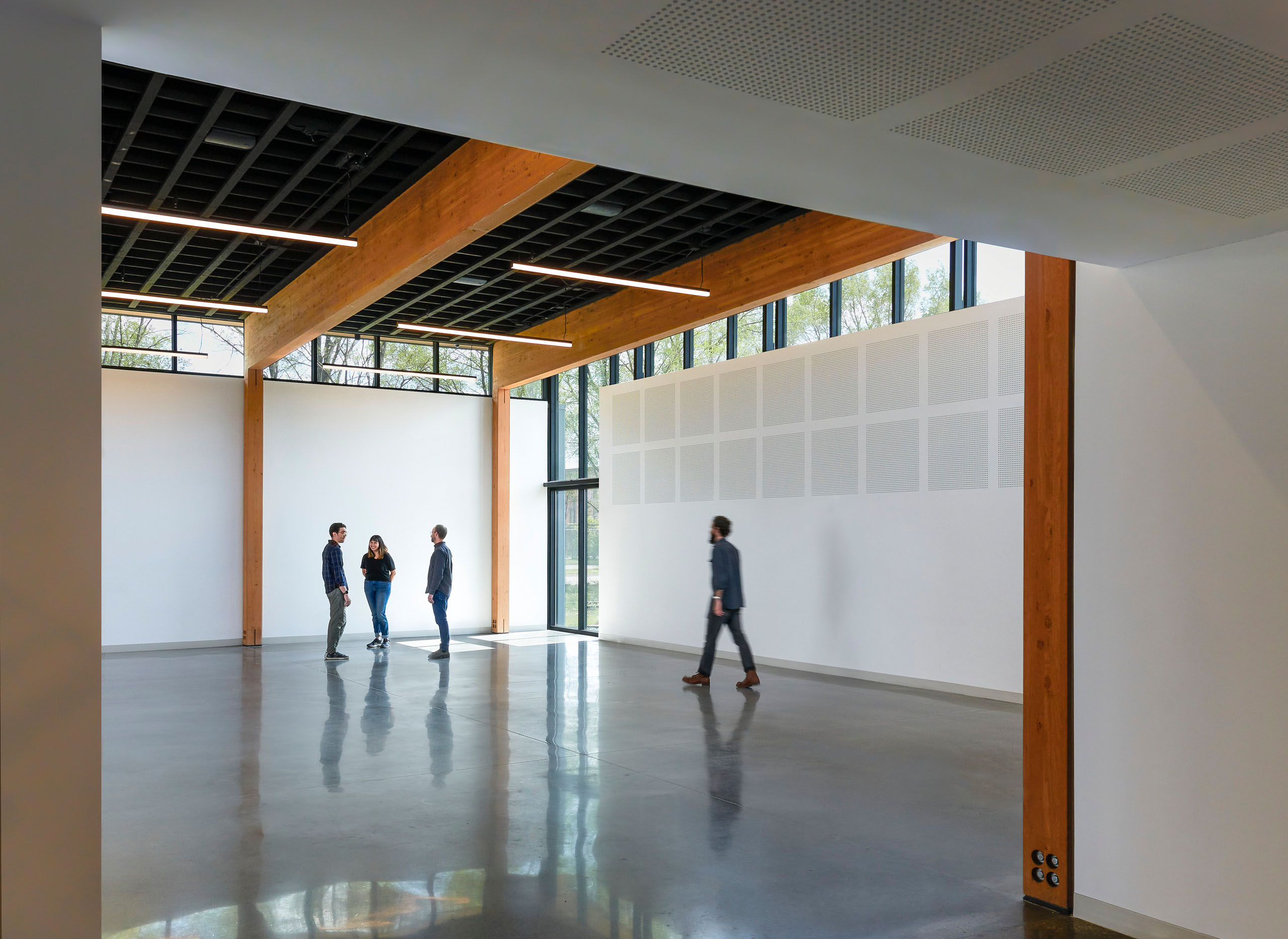
Awards
AIA Iowa
2021 Excellence in Energy Efficient Design Award
2021
